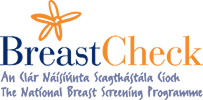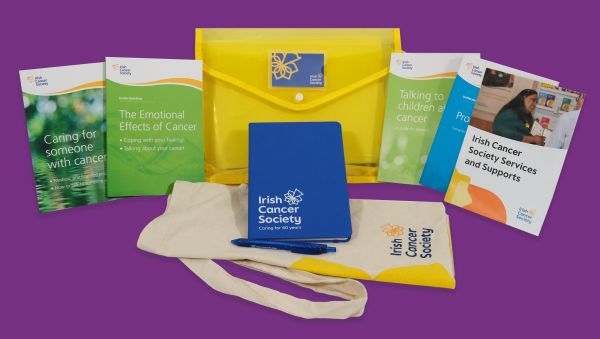Breast Cancer
Early detection
The sooner you notice a change, the better because if cancer is found early, treatment is more likely to be successful. It is best to get into the habit of checking your breasts regularly.
It is important that every woman is breast aware. This means knowing what is normal for you, so that you can spot any changes in your breasts.
Watch video: How to check your breasts
How to check your breasts
Our cancer nurse Roz shows you what changes to look out for each month in a video that explains how to check your breasts, step by step.
Read the step-by-step guide
Changes in your breasts to be aware of
- A lump, any size, or thickening in your breast or armpit
- A change in size or shape – it may be that one breast has become larger
- A change in the skin of your breast – like puckering or dimpling
- A breast abscess (infected boil) – this may appear as a red, tender area on your breast
- A change in your nipple, like pulled-in, sunken, or flattened nipple
- An unusual discharge (liquid) from one or both of your nipples – the discharge may be blood-stained or watery
- A change on or around the nipple, such as a rash, or flaky or crusted skin
- Swelling in your armpit or around your collarbone
- Financial and practical supports
Techniques for checking your breasts
Look for changes by using a mirror so that you can see the breasts from different angles.
Feel for changes
An easy way of feeling your breast is with a soapy hand in the bath or shower. Some women prefer to feel for changes while lying down.
Know what is normal for you
It's important to know what is normal for you. Your breasts will go through many normal changes during your life. For example, they are affected by changes in your hormones during your menstrual cycle, pregnancy and breast-feeding and menopause.
National breast screening programme
Check if you are registered for the free screening of women aged 50-67 in Ireland.
For more information on the screening programme, you can contact BreastCheck directly at Freephone 1800 45 45 55 or visit the BreastCheck website.

BreastCheck is a Government funded programme providing breast screening and invites women aged between 50 to 69 years for a free mammogram on an area-by-area basis every two years. The aim of BreastCheck is to reduce deaths from breast cancer by finding and treating the disease at an early stage.
Continue reading about Breast Cancer
Frequently Asked Questions
Lorem ipsum dolor sit amet, consectetur adipiscing elit. Phasellus lobortis dolor ut quam tristique auctor. Fusce a egestas orci, a pellentesque ante. Etiam ligula orci, aliquet eu augue eget, pharetra tempor nulla. Cras in dignissim tortor, et ornare lorem. Vivamus molestie diam et blandit tincidunt. Nam sed nibh tincidunt, iaculis enim non, ullamcorper libero. Fusce consequat aliquam diam, vestibulum congue ipsum aliquam quis. Praesent non sodales mi. Donec pretium libero ac auctor bibendum. Vestibulum risus augue, rhoncus ac urna at, vestibulum elementum lectus. Vestibulum nec augue nec tellus tempor volutpat. Ut aliquam ullamcorper tellus at placerat.
Lorem ipsum dolor sit amet, consectetur adipiscing elit. Phasellus lobortis dolor ut quam tristique auctor. Fusce a egestas orci, a pellentesque ante. Etiam ligula orci, aliquet eu augue eget, pharetra tempor nulla. Cras in dignissim tortor, et ornare lorem. Vivamus molestie diam et blandit tincidunt. Nam sed nibh tincidunt, iaculis enim non, ullamcorper libero. Fusce consequat aliquam diam, vestibulum congue ipsum aliquam quis. Praesent non sodales mi. Donec pretium libero ac auctor bibendum. Vestibulum risus augue, rhoncus ac urna at, vestibulum elementum lectus. Vestibulum nec augue nec tellus tempor volutpat. Ut aliquam ullamcorper tellus at placerat.
Lorem ipsum dolor sit amet, consectetur adipiscing elit. Phasellus lobortis dolor ut quam tristique auctor. Fusce a egestas orci, a pellentesque ante. Etiam ligula orci, aliquet eu augue eget, pharetra tempor nulla. Cras in dignissim tortor, et ornare lorem. Vivamus molestie diam et blandit tincidunt. Nam sed nibh tincidunt, iaculis enim non, ullamcorper libero. Fusce consequat aliquam diam, vestibulum congue ipsum aliquam quis. Praesent non sodales mi. Donec pretium libero ac auctor bibendum. Vestibulum risus augue, rhoncus ac urna at, vestibulum elementum lectus. Vestibulum nec augue nec tellus tempor volutpat. Ut aliquam ullamcorper tellus at placerat.
Online Breast
Health Checker
Take this short quiz and find out more about staying healthy and the signs of breast cancer.
Our Survivor Support programme we can match you with a volunteer who has gone through a similar experience.
Discover of you are enrolled for breast screening
If you’re finding it difficult to get to and from treatments, we may be able to ease some of the strain of travelling to and from your appointments.
Related Support
Free support pack

Our Daffodil Centres

